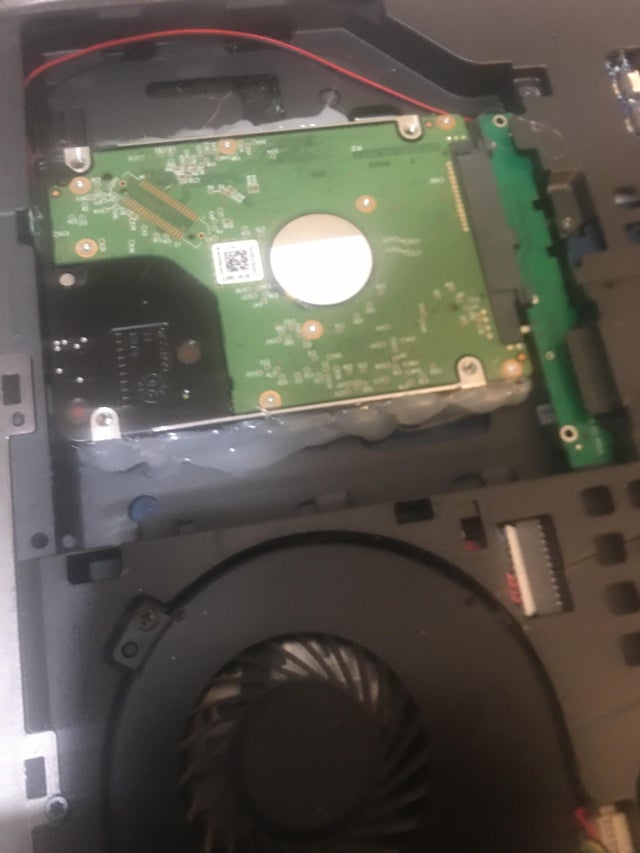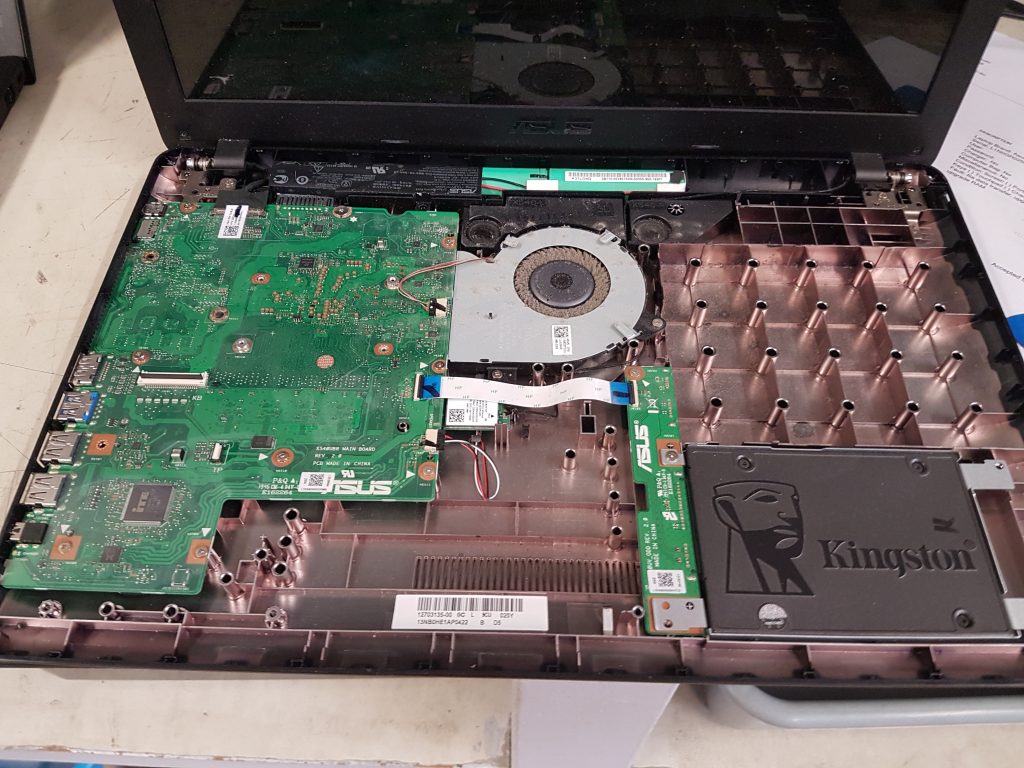Owning a laptop is handy until something goes awry, especially with its hard drive. A broken laptop hard drive can be a big problem, whether it’s old, heavily used, or suddenly acting up. It might cause you to lose important stuff and mess up your work or fun computer activities.
We’ll discuss common signs that show your laptop’s hard drive is failing. We’ll also provide easy steps to help you fix it and recover your lost data.
LABOUR CHARGE TO INSTALL NEW HARD DRIVE LAPTOP TYPICALLY STARTS AT $45

Common Reasons Your Laptop Hard Drive Stops Working Properly
Experiencing issues with your laptop’s hard drive can lead to data loss and disruptions. Understanding common reasons for hard drive failures is crucial for early detection and prevention. Below are key reasons:
- Physical Damage. If your laptop gets too hot or wet, it can break the insides, mess up the hard drive, and make it less trustworthy over time.
- Age and Wear. The parts that move inside, such as spinning disks and reading arms, can wear out as you use your laptop. Its wearing out can make your laptop slower and might even make it stop working at some point. Typically, laptops last several to about ten years before they start having significant problems, but it depends on how much you use them and how well it’s built.
- Electrical Issues. Sudden power surges or fluctuations can damage the circuitry of your hard drive, causing it to malfunction or fail. Moreover, a faulty laptop or not-matched power source can introduce electrical issues affecting the hard drive’s operation.
- Software and File System Corruption. Nasty programs like viruses and malware can get into your laptop and mess things up. They can mess with your files, how your laptop stores information, and sometimes even make your hard drive stop working. Also, if your laptop shuts down suddenly or incorrectly, it can mess up your files and how your hard drive works.
- Manufacturing Defects. Sometimes, problems with the hard drive’s parts or how it was made can cause it to break or not work well. Firmware bugs or matching issues can cause erratic behaviour or failures in specific hard drive models.
- Overheating. Laptops can overheat if they don’t cool properly or have blocked ventilation. This can damage internal parts and shorten the laptop’s lifespan.
- Natural Wear and Tear. Using your laptop often, especially for games or editing videos that need much power, can make your hard drive wear out faster. Over time, your files can become scattered across the hard drive. This can slow down your laptop and cause problems with reading or writing data.
Signs of a Failing Laptop Hard Drive
Before diving into solutions, it’s crucial to recognize the signs indicating that your laptop or computer hard drive may be failing:
- Slow Performance: If your laptop suddenly becomes sluggish, taking longer to boot up or access files could indicate hard drive issues.
- Frequent Errors: A failing hard drive can lead to more system errors, crashes, or corrupted files.
- Strange Noises: Strange sounds like clicking, grinding, or whirring from your laptop could mean something wrong with the hard drive’s moving parts.
- Missing Files or Data Corruption: If your files disappear, cannot be opened, or show errors when you try to open them, it could indicate a problem with your hard drive.

Steps to Take When Your Laptop Hard Drive Malfunctions
1. Backup Your Data Immediately
When you see any signs that your hard drive is having problems, make sure to copy your important files and data to an external drive or online storage. This way, if your hard drive completely stops working, you won’t lose important information.
2. Diagnose the Problem
Use built-in diagnostic tools or third-party software to assess the health of your hard drive. These tools can identify bad sectors and its overall health status and provide insights into potential issues.
3. Free Up Space and Defragment
If your laptop is running low on storage space, freeing up space and running disk optimization (for HDDs) can sometimes temporarily improve performance.
4. Repair Disk Errors
Use disk repair utilities (CHKDSK for Windows or Disk Utility for macOS) to scan and repair disk errors. This can resolve minor issues causing shakiness.
5. Consider Hard Drive Replacement
If the above steps don’t resolve the issues or if your hard drive continues to exhibit problems, consider replacing it. Based on your budget and performance requirements, choose between traditional HDDs or faster SSDs.
6. Seek Professional Help
If you’re not sure how to figure out or change the hard drive on your own, it’s a good idea to ask for help from experts like computer technicians or repair shops. They can find out what’s wrong and fix or change the hard drive if needed.

Data Recovery Options
Consider professional data recovery services if your hard drive fails completely or you delete important files by mistake. These specialists use advanced techniques to recover data from damaged or not available drives, helping you retrieve valuable information.
DIY vs. Professional Installation
While replacing a laptop hard drive is technically feasible for some users, it requires careful handling and software installation skills. DIY (Do It Yourself) can save on labour costs but carries risks, such as data loss or damage if not done correctly.
On the other hand, opting for professional installation ensures proper handling and data transfer (if applicable) and often comes with warranties on the service provided. It’s crucial to weigh the costs against the expertise and convenience professionals offer.
Click here to know moreHow much to replace hard drive on laptop?
The price of getting a new hard drive for your laptop can change based on things like what type of hard drive it is (regular or faster SSD), how much space it has, the brand, and if you do it yourself or get help. Usually, a new hard drive can cost anywhere from $50 to $200 or more.
Additionally, if you choose professional installation, you may incur additional labor costs ranging from $50 to $100 or more. It’s essential to consider these factors and shop around for the best deals or consult with a computer technician for accurate cost estimates tailored to your specific needs.
Dealing with a malfunctioning laptop hard drive can be daunting, but timely action and preventive measures can mitigate data loss and restore your laptop’s functionality. Remember to regularly back up your data, monitor your hard drive’s health, and seek professional help to ensure smooth computing experiences without unexpected disruptions.


Leave A Comment